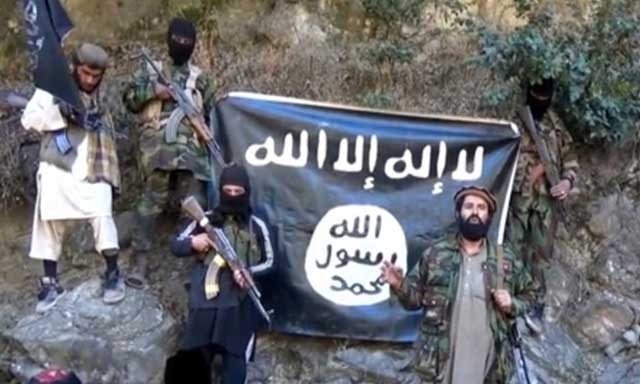Since the 1980s, Afghanistan has endured the campaign against Soviet occupation, civil war after the Soviets withdrew and the ongoing battle against Taliban insurgents since the fundamental Islamist movement was toppled in 2001. Now, the emergence of the Islamic State (IS) group has posed more challenges and will protract the war in Afghanistan.
There is a sense of fear and mistrust in the air and Afghan locals undergo the bulk of violence and militancy. The Taliban’s heavy inroads on the one hand and the IS’s insurgency on the other hand will lead to public dismay. The current exodus and economic stagnation reflect the political syndrome.
Afghan women fear a return to the Taliban’s time – as their freedom was curtailed on a large scale, the girls’ schools were closed and they were excluded from social activities. In other words, the women’s rights and dignity were trampled upon and they were deemed an inferior creature.
However, the self-styled Islamic State group’s inhuman practices have surpassed the Taliban. It is said that when the Islamic State fighters seized the Mahmand Valley, they poured pepper into the wounds of their enemies. Then, they seared their hands in vats of boiling oil. A group of villagers was blindfolded, tortured and blown apart with explosives buried underneath them.
“They pulled out my brother’s teeth before they forced him to sit on the bombs,” Malik Namos, a tribal elder who escaped the valley along with thousands of other villagers, is quoted as saying. “They are more vicious than the Taliban, than any group we have seen.”
The emergence of the Islamic State — the extremist organization that arose in the Middle East — has ushered in a new age of brutality. This radical group adds a fresh dimension to the contest for Afghanistan’s future, a key reason why President Obama is considering a plan to keep as many as 5,000 U.S. troops in Afghanistan past next year. Their decrees threaten in some areas to reverse U.S.-funded gains in education and women’s rights. And they have made the Taliban, who have also committed atrocities, an appealing alternative in ungoverned regions.
The militants in Afghanistan arose from a different set of circumstances and come to the struggle with a somewhat different outlook. While in the Middle East the group seeks to create a global Islamic caliphate, some fighters here have local ambitions such as re-creating the Taliban’s medieval social order, particularly taboos imposed on girls and women, which have waned in many areas since first imposed two decades ago.
Since the withdrawal of most U.S. and international troops in December, the Islamic State has steadily made inroads in Afghanistan. A report last month from the United Nations’ al-Qaeda/Taliban Monitoring Team found that the group — also known by its Arabic acronym Daesh — has a growing number of sympathizers and was recruiting followers in 25 of Afghanistan’s 34 provinces.
Villagers say, “Many with long hair and beards went door-to-door. They ordered villagers to leave their houses and farms within hours. They seized livestock and crops. They shut down scores of schools and Islamic madrasahs and destroyed electricity lines and cell phone towers. The fighters included some foreigners from Chechnya and Uzbekistan.”
In recent years, the Taliban’s oppressive social codes have not been enforced in many areas, as the Taliban tried to win popular support. In some parts of the country, girls are allowed to attend schools. Hard-line attitudes against music have softened. Public executions have been reduced.
Now, Islamic State fighters, led by former hard-line Taliban, are restoring the puritanical way of life in some areas. They have ordered men to grow long beards. Women cannot leave their houses without wearing the traditional head-to-toe blue burqa and must be accompanied by a male relative. Smoking is banned, and shops that sell cigarettes have been shut down.
Afghans fall the victim of the IS and Taliban’s strict ideologies as the warring parties have intensified their operations across the country. The Kunduz takeover was a shocking message to the government and now the beleaguered city of Ghazni is at a critical situation and the Taliban have been organized for attack. Targeting central provinces one after another is a matter of great concern.
“On its first anniversary, the National Unity Government’s promise of restoring security, spearheading economic development, and transforming the war-torn country into a sustainable and responsible partner with its strategic allies proved to be more political bluster then achievable goal. The economy is stagnating, a brain drain is shaking the country, and Afghan refugees – many of them fleeing for security or employment reasons – constitute the second largest group after Syria. On the front lines, the soldiers are routinely losing some of their best combatants and commanders who could have been saved if provided with leadership, timely reinforcement, and logistics.”
Afghan President Ashraf Ghani, the Chief Executive Officer Dr. Abdullah Abdullah and their partners in the National Unity Government should be reminded by Afghan history that the current situation is bad and could get worse. If they fail to overcome political differences, the country will fall to the Taliban. The best hope for safeguarding Afghanistan is to support its armed forces.
The soldiers urgently need cohesive military and political leadership, equipment, effective intelligence gathering, and timely reinforcement. Moreover, the key posts, especially the ministry of defense, should no more be controlled by acting heads rather political elites are to be introduced without further delay.

